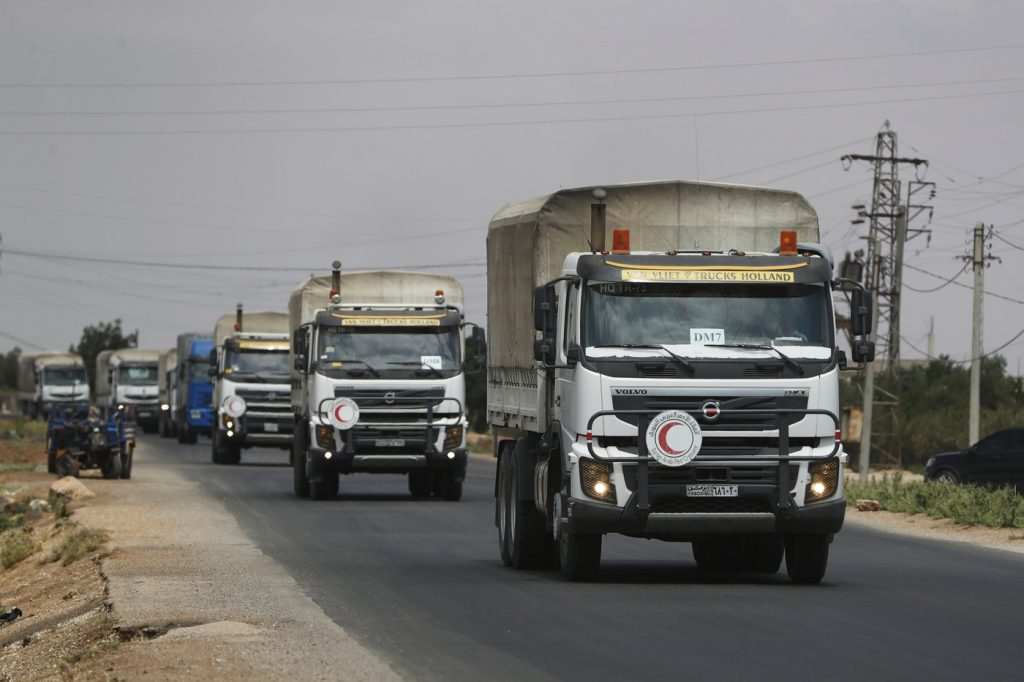MAZRAA, Syria (AP) – Armed Bedouin clans in Syria declared their withdrawal from the southern city of Sweida on Sunday, following more than a week of intense clashes and a U.S.-brokered ceasefire agreement. The violence involved militias primarily from the Druze religious minority and Sunni Muslim clans, which resulted in hundreds of casualties and raised concerns about Syria's precarious postwar transition.
The ongoing fighting was exacerbated by mutual kidnappings and escalated in various towns and villages in Sweida province, ultimately reaching the city itself. Government forces attempted to intervene to quell the clashes but subsequently withdrew, leaving the situation volatile.
Interim President Ahmad al-Sharaa, sympathetic to the Bedouins, appealed to the Druze community and criticized the militia's actions. In a public address, he implored the Bedouins to vacate the city, emphasizing that they "cannot replace the role of the state in managing the country’s affairs and restoring security." He expressed gratitude to the Bedouins for their actions but stressed the need for compliance with the ceasefire and state authority.
The Bedouins' withdrawal led to a cautious calm in the region, which prompted humanitarian efforts. The Syrian Red Crescent announced the dispatch of 32 trucks carrying essential supplies such as food, medicine, water, and fuel to Sweida, following severe power shortages in the aftermath of the conflict. The Syrian Health Ministry also confirmed that medical aid would be sent through additional convoys.
Washington’s special envoy to Syria, Tom Barrack, noted that the recent violence overshadowed initial optimism regarding Syria's post-war recovery and international efforts to lift sanctions. He urged all factions to disarm, cease hostilities, and end tribal vengeance cycles, calling for immediate peace and dialogue to prevent further destabilization.
The violence led to significant casualties among Druze civilians, who were targeted in various attacks by Bedouin fighters and government forces. Disturbing videos surfaced online showing fighters degrading Druze symbols, including the destruction of portraits of prominent Druze leaders and the shaving of elderly men’s mustaches, which is viewed as an affront to their cultural values. In retaliation, Druze militiamen launched assaults on Bedouin-dominated areas, prompting many families to flee toward the neighboring Daraa province.
Globally, over half of the approximately one million Druze reside in Syria, with significant populations in Lebanon and Israel, particularly in the Golan Heights, which Israel captured in the 1967 Mideast War. The Druze community in Syria had previously celebrated the end of the Assad family's long-standing rule, but recent events have fostered skepticism toward the new leadership in Damascus and have increasingly jeopardized prospects for peaceful coexistence among the differing communities.
As tensions remain high and the humanitarian situation develops, the future of stability in Sweida and surrounding regions hangs in the balance, accentuating the fragile dynamics of post-war Syria.











